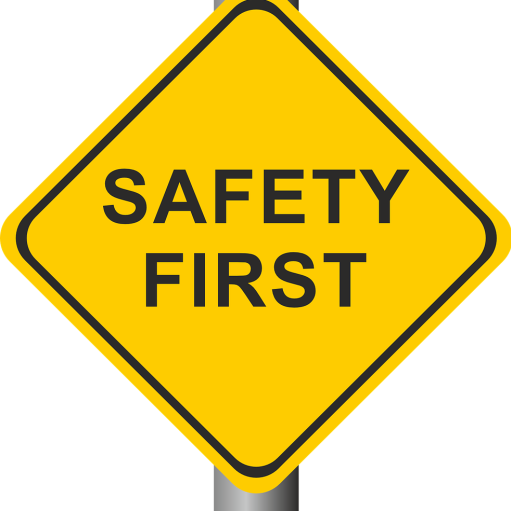Social media has woven itself into the fabric of teenage life, making it easy for them to connect and find information. However, alongside these benefits come serious challenges that could impact their mental health and overall happiness. It’s vital for both teenagers and their parents to be aware of these challenges while also learning how to engage with the digital landscape in a responsible way.
Social Media’s Presence in Teenage Life
For many teens, social media serves as a key platform for keeping in touch with friends, sharing experiences, and staying updated on news. Influences such as peer pressure, fear of missing out (commonly referred to as FOMO), and the urge to stay linked with classmates contribute greatly to the widespread usage of these platforms. While there are certainly advantages to engaging on social media, it’s important not to overlook the potential negative impacts on the mental and physical health of young people.
Concerns About Mental Health
The online world can sometimes be a double-edged sword for teenagers. Frequently seeing carefully crafted public personas can sometimes make them feel inadequate when they compare themselves to others, resulting in low self-esteem and possibly even feelings of depression. Additionally, being a target of cyberbullying can leave deep emotional scars, fostering sadness and despair in young individuals. Evidence suggests that teenagers who spend more than three hours each day invested in social media increase their risk of experiencing bouts of anxiety and depression.
The Link to Depression and Anxiety
A strong correlation exists between high social media usage and an uptick in symptoms of anxiety and depression in young people. Issues such as peer pressure and feelings of not measuring up add to this emotional turmoil. This sense of FOMO heightens their anxiety, leading to significant discomfort.
Body ImageStruggles
Social media also creates a dangerous environment for body image issues, where many teens consistently encounter unrealistic portrayals of beauty and physical fitness, further leading to feelings of inadequacy and reduced self-worth.
Cyberbullying as a Real Threat
Cyberbullying has become distressingly common within social network platforms. Many young people who have become victims report incredible emotional distress, often feeling sad and hopeless as a result of their experiences. Some groups, like teenage girls and LGBTQ+ youth, are especially vulnerable in this domain, as online harassment significantly impacts their mental well-being.
Sleep Disruption
Using social media excessively also affects sleep patterns, which are extremely important for healthy brain development and general health. Lack of sleep can contribute to serious issues like depression or slower reaction times that can negatively influence day-to-day activities.
Effects on Social Skills
When teens spend a lot of their time online, they might lose out on nurturing vital communication and interpersonal skills, making face-to-face interactions feel overwhelming. When social media becomes a substitute for real-life interactions, it creates emotional unresponsiveness and anxiety among young individuals in personal discussions.
Exposure to Inappropriate Material
Another risk is the exposure to graphic or mature content that can stick with a teenager permanently. Images or messages that showcase violence, sexual content, or rude behavior can severely affect their emotional and psychological state as they grapple with sensitive subjects far beyond their understanding.
Engagement in Risky Behaviors
Social media can occasionally be a gateway to risky choices, including sharing embarrassing snaps or private information with unknown individuals. This behavior can escalate into bullying situations or worse, potentially exploiting teens who might not fully grasp the consequences of their actions.
Privacy and Security Risks
Being reckless about personal information online can open the door to various dangers such as identity theft, online stalking, or bullying. Therefore, it’s vital for teens to learn how to set and manage their privacy settings adequately to protect themselves.
Issues with Targeted Advertising and Data Breach
Furthermore, advertisers might use data gathered from teens for trying to influence their shopping choices, posing yet another threat to their privacy. Additionally, if companies experience data breaches, they could unintentionally compromise the personal information of young users.
Pressure to Maintain Online Presence
The desire to keep followers and nurture a social media “streak” can create a significant layer of stress for teenagers. The fear of not measuring up can result in addiction to social media, leading them to constantly seek approval from their peers.
Adolescents in a Vulnerable Stage
During adolescence, crucial brain development occurs, making teenagers more susceptible to the negative consequences of social media. As they become more sensitive to the content they encounter, it affects their growth and social formation even more profoundly.
Signs of Adverse Effects
Parents should be vigilant in noticing signs of unhealthy social media use in their children. It’s essential to pay attention to indicators such as diminishing real-world friendships, increased self-criticism, experiences of cyberbullying, heightened feelings of loneliness and depression, decreased concentration in school, disruptive sleep habits, and neglecting active self-care.
Reducing the Risks
If parents and guardians want to help teens navigate social media smartly and reduce potential hazards, here are some approaches to consider:
Encourage Open Dialog
Foster an environment where teenagers feel comfortable discussing their social media usage and experiences. Open communication can lead to better understanding and support.
Set Clear Guidelines
Establish specific limitations regarding social media usage, such as time restrictions and acceptable content.
Educate on Privacy
Teach your teenager to appreciate the value of privacy, helping them manage their settings to safeguard personal information effectively.
Think Critically
Encourage analytical thinking regarding the content consumed on social media and instill a habit of questioning what they see.
Foster Offline Interactions
Guide young individuals to invest time in real-life activities and nurture meaningful relationships outside the online world.
Be Mindful of Mental Health
Continuously watch your child’s emotional and mental state – don’t hesitate to seek professional help if depression or anxiety comes into play.
Model Positive Behavior
Set a good example for your teens by demonstrating responsible social media use and healthy technology habits.
Prioritize Online Safety
Utilize security measures to keep personal information safe online.
Conclusion
Social media certainly brings joy and a world of connection, but it also carries notable risks that can impact teens severely. By being aware of these dangers and actively taking steps to reduce them, parents and guardians can assist young people in navigating the digital climate safely and wisely. Through genuine conversations, prudent boundaries, and promoting personal interactions, teens can cultivate a healthier relationship with social media, bolstering their overall well-being.

